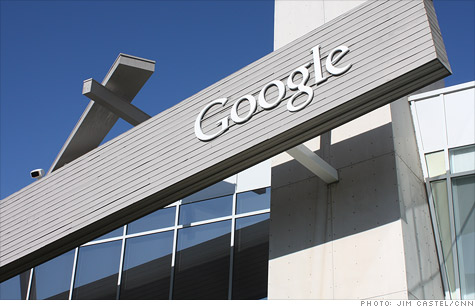
NEW YORK (CNNMoney) -- Angry rants about the demise of corporate culture aren't reserved only for ex-Goldman Sachs employees. Microsoft-turned-Google engineer James Whittaker -- now once again a Microsoft employee -- fired off a scathing blast Tuesday on a Microsoft blog about why he left Google.
"My last three months working for Google was a whirlwind of desperation," wrote Whittaker, who headed an engineering team for social network Google+. "The Google I was passionate about was a technology company that empowered its employees to innovate. The Google I left was an advertising company with a single corporate-mandated focus."
Whittaker, who joined Google in 2009 and left last month, described a corporate culture clearly divided into two eras: "Before Google+," and "After."
"After" is pretty terrible, in his view.
Google (GOOG, Fortune 500) once gave its engineers the time and resources to be creative. That experimental approach yielded several home-run hits like Chrome and Gmail. But Google fell behind in one key area: competing with Facebook.
That turned into corporate priority No. 1 when Larry Page took over as the company's CEO. "Social" became Google's battle cry, and anything that didn't support Google+ was viewed as a distraction.
"Suddenly, 20% meant half-assed," wrote Whittaker, referring to Google's famous policy of letting employees spend a fifth of their time on projects other than their core job. "The trappings of entrepreneurship were dismantled."
Whittaker is not the first ex-Googler to express that line of criticism. Several high-level employees have left after complaining that the "start-up spirit" of Google has been replaced by a more mature but staid culture focused on the bottom line.
The interesting thing about Whittaker's take is that it was posted not on his personal blog, but on an official blog of Microsoft (MSFT, Fortune 500), Google's arch nemesis.
Spokesmen from Microsoft and Google declined to comment.
The battle between Microsoft and Google has heated up recently, as the Federal Trade Commission and the European Commission begin to investigate Google for potential antitrust violations. Microsoft, with its Bing search engine, has doubled its share of the search market since its June 2010 founding, but has been unsuccessful at taking market share away from Google.
Microsoft is increasingly willing to call out Google for what it sees as illicit behavior. A year ago, the software company released a long list of gripes about Google's monopolistic actions, and last month it said Google was violating Internet Explorer users' privacy.
Despite his misgivings about what Google cast aside to make Google+ a reality, Whittaker thinks that the social network was worth a shot. If it had worked -- if Google had dramatically changed the social Web for the better -- it would have been a heroic gamble.
But it didn't. It's too early to write Google+ off, but the site is developing a reputation as a ghost town. Google says 90 million people have signed up, but analysts and anecdotal evidence show that fairly few have turned into heavy users.
"Google was the rich kid who, after having discovered he wasn't invited to the party, built his own party in retaliation," Whittaker wrote. "The fact that no one came to Google's party became the elephant in the room." ![]()